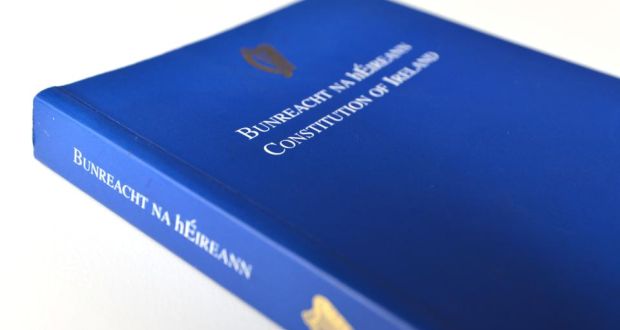Anti-Discrimination Legislation
 Constitution of Ireland
Constitution of Ireland
According to Article 44 of the Constitution of Republic of Ireland, the state shall not patronise any religion, there shall be no discrimination based on religious affiliation, faith or position (including discrimination of schools). It notes that every religion has the right to manage its own affairs, own, purchase and manage assets and organise religious and charity organisations.
A December 1972 amendment saw the deletion of specific recognition of the Catholic Church as well as other specific denominations.
On July 20, 2010, Ireland legalised same-sex civil partnerships.
In 2013, Ireland signed a resolution that instructed schools to combat racism among students.
On July 27, 2014, Ireland instituted a Commission for Human Rights and Equality. The Commission will constitute of 12-15 people appointed by the president for the term of no more than 5 years. Human Rights and Equality Commission will engage in facilitating respect towards human rights and equality, organise corresponding promotional events, anti-discrimination projects and facilitate integration. It will also consider cases of discrimination of various groups and will have the right to appeal to court on their behalf. The Commission will prepare reports and recommendations for the government and advise the Supreme Court.
On the other hand, Ireland practically lacks criminal legislation regarding hate crime. On June 18th, the Transgender Equality Network Ireland (TENI) also deplored the lack of hate crime legislation in the country, which had given Irish society a “permission to hate”. The warning came as TENI released a new report which documented 32 incidents of violence or discrimination against transgender persons.
The laws prohibit discrimination with certain exceptions in relation to access to and use of goods and services, including indirect and associational discrimination, sexual and harassment harassment, and victimization. The laws allow for affirmative action to promote the equality of disadvantaged persons or to meet the special needs of people. Discriminatory advertising is also prohibited. You may not post, display, or cause the publication or display of advertising that indicates intent to discriminate, harass, or sexually harass, or could reasonably be understood to indicate such intent.
Discrimination is defined as less favorable treatment. An employee is considered to be discriminated against if he is treated less favorably than another, has been or will be treated in a comparable situation. The same applies to cases where a person is discriminated against in accessing goods or services, such as access to housing, social security, etc.
Following the 2018 constitutional amendment in 2019, the Oireachtas (parliament) passed a separate bill to repeal the 2009 provision and residual references to blasphemy. It came into force in 2020. However, the Prohibition of Hate Speech Act 1989, religion among the characteristics protected from hate speech, remains in effect.
In April 2021, the Irish Government introduced the Common Criminal Justice Scheme (Hate Crimes) Bill. The bill is to replace the outdated 1989 Law on the Prohibition of Hate Incitement, which does not include such factors as gender identity and disability, as well as the ethnic identity of Payvi nomads as criteria for hate crimes. The Bill will create new forms of aggravating circumstances for some existing criminal offenses when these offenses are motivated by bias against a protected feature. In addition, in the new bill, the denial or gross trivialization of the crimes of genocide, including Holocaust denial, will become a separately codified crime.
In March 2022, this bill was considered in Commission on Human Rights and Equality of the Irish Parliament and received a positive opinion.


